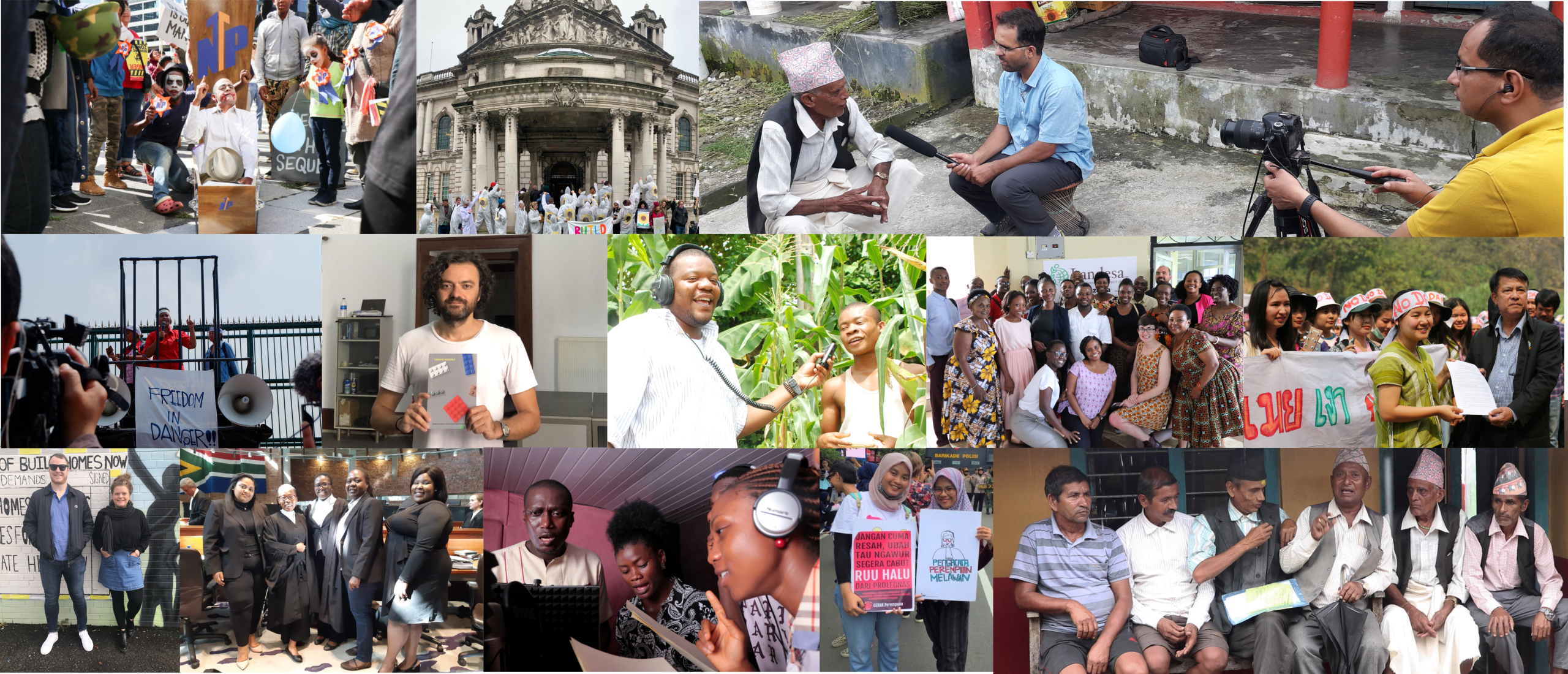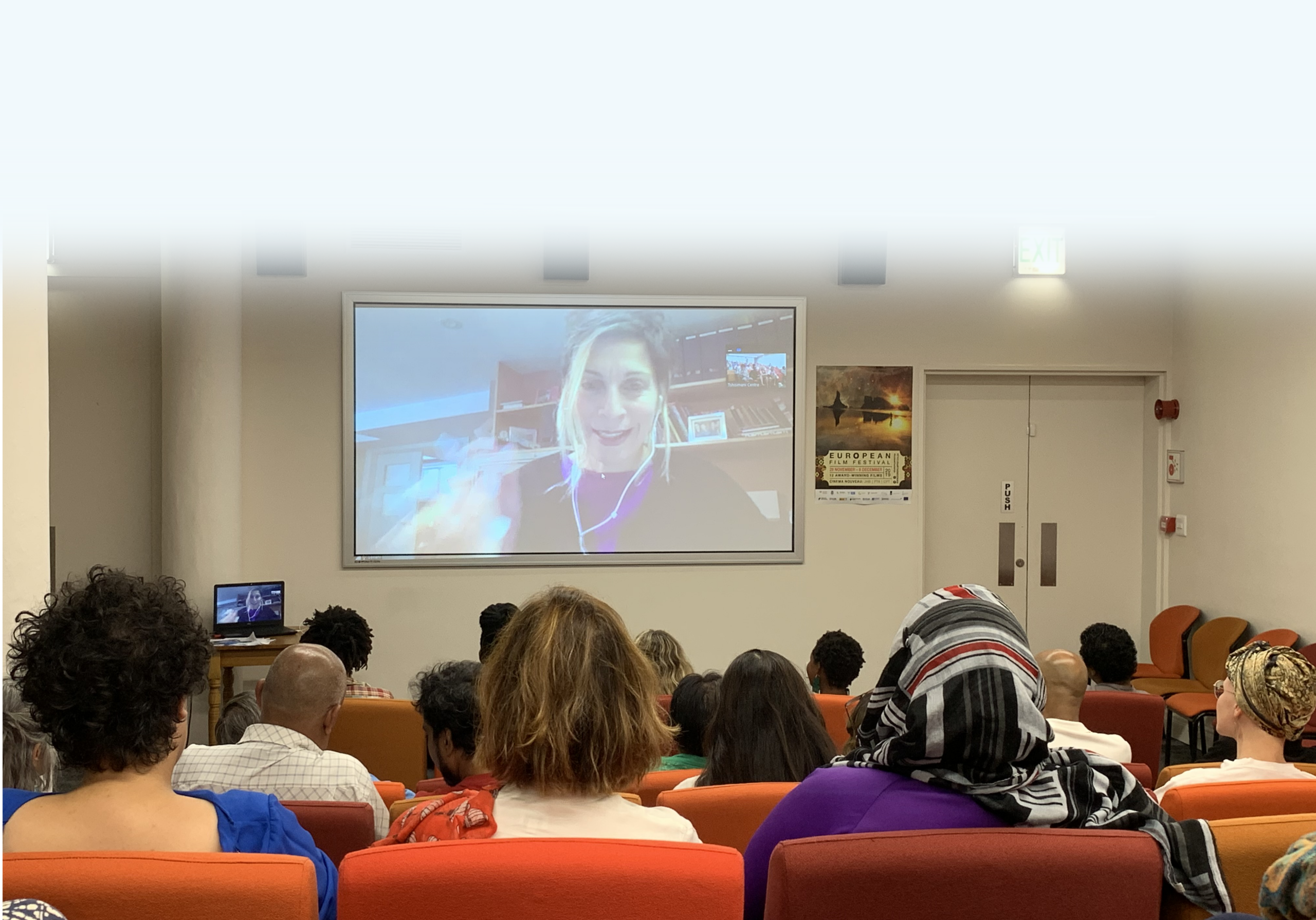Leilani Farha
Canada

Leilani Farha joined the Bertha Challenge in her final year as UN Special Rapporteur on the right to adequate housing. The Fellowship presented an opportunity for her to connect, share and collaborate with locally focused activists and investigative journalists.
The Bertha Challenge encourages Fellows to connect across a diverse cohort, to explore new ways of working collaboratively outside their traditional silos and to support each other’s campaigns and projects.
For Canada-based activist Fellow Leilani Farha – then in her last year as UN Special Rapporteur on Adequate Housing – the Bertha Challenge was an opportunity to connect her global advocacy and legal work with locally focused activism and journalism.
She brought with her an international platform recognized for drawing attention to how financialization hinders the advancement of housing as a basic human right in cities around the world – a problem at the heart of the Bertha Challenge 2020 question.
Through the Fellowship program, Leilani was able to connect regularly with activists and journalists across 14 countries. Hearing about their projects had an influence on her work:
“It was deeply enriching for me to have access to people doing this on a day-to-day basis. I knew that once every few weeks, I would have a conversation with the cohort and expand my own understanding and learning.”
Leilani Farha, Canada Without Poverty
Leilani produced policy guidance notes as a part of her Fellowship: these were resources that activist and journalist Fellows in the cohort used for their own Fellowship projects. When journalist Fellow Sotiris Sideris presented his investigation into housing inequalities in Athens, for example, he used Leilani’s guidance notes on government human rights obligations to housing provision in the face of the Covid-19 pandemic to highlight the Greek government’s failure to protect those at risk of eviction.
Similarly, other Fellows – and even other Bertha grantees – benefited from access to Leilani and the office she held. On 5 December 2019, the Tshisimani Centre for Activist Education hosted a public screening of Leilani’s film Push for land and housing activists in Cape Town. This was followed by a live (over video link) discussion between Leilani and Mandisa Shandu, director of Ndifuna Ukwazi – a Bertha grantee as well as Bertha Challenge Fellow Jared Rossouw’s host organization. Leilani offered an international human rights perspective on the housing challenges faced in South Africa, while Mandisa discussed the resistance to growing housing inequalities from communities, activists and lawyers calling for affordable land and housing.
Ndifuna Ukwazi recently won a landmark court case on the right to housing against the City of Cape Town using Leilani’s UN reports:
“Leilani has been particularly vocal on the growing crisis of exclusionary cities, and her work provides a human rights underpinning to the struggle for the poor and working class to reclaim their cities – research that we have relied on in our recent court victory towards securing public land for affordable housing in Cape Town, where the right to the city has been usurped by exclusionary interests entrenched in a segregationist concept of space.”
Mandisa Shandu, Ndifuna Ukwazi

CREDITS
Photo 1: Leilani Farha remotely joins a screening of Push at the Tshisimani Centre in December 2019. Image: Gavin Silber
Authors: The Bertha Challenge Team
Editorial Consultant: Karen Frances Eng
This story was originally published in the Bertha Fellows book and some of the information in this story may have changed since it was first published.


 Built with Shorthand
Built with Shorthand